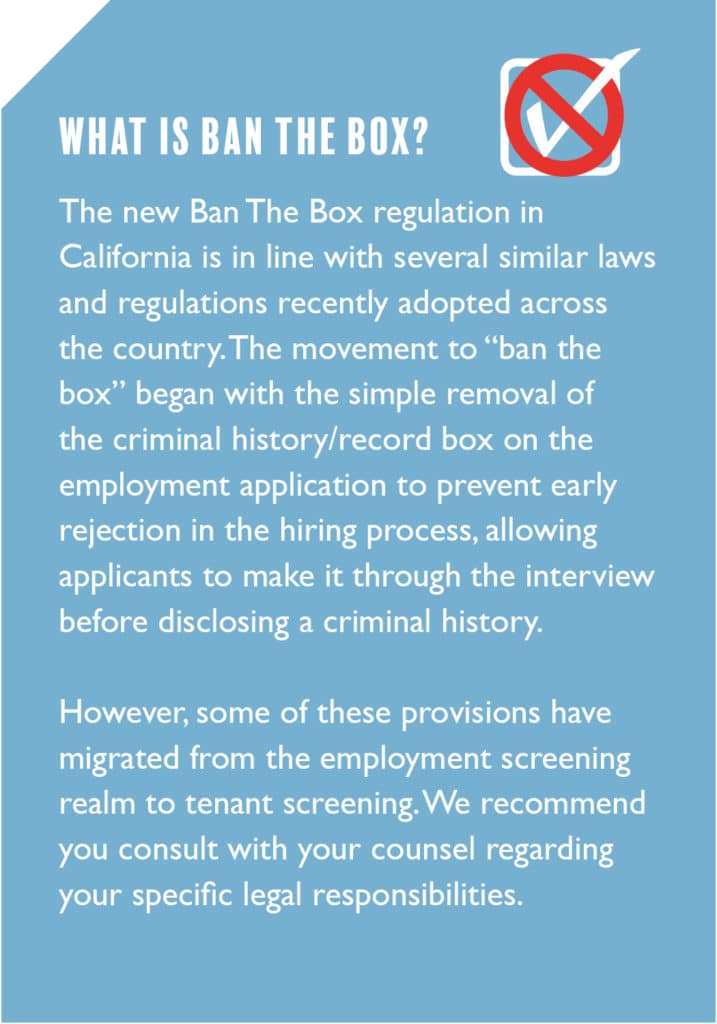CALIFORNIA BAN THE BOX REGULATION EFFECTIVE JULY 1, 2017
 The California Fair Employment and Housing Council (FEHC) has finalized the “Consideration of Criminal History in Employment Decisions” regulation. The full text can be found here.
The California Fair Employment and Housing Council (FEHC) has finalized the “Consideration of Criminal History in Employment Decisions” regulation. The full text can be found here.
Some of the provisions include:
- Employee Selection.: Selection and Testing. Any policy or practice of an employer or other covered entity that has an adverse impact on employment opportunities of individuals on a basis enumerated in the Act is unlawful unless the policy or practice is both job-related and consistent with business necessity (as business necessity is defined in section 110107).
- Criminal History Information: Employers Are Prohibited from Seeking or Considering, Irrespective of Adverse Impact. Except if otherwise specifically permitted/provided by law, employers are prohibited from considering the following types of criminal history, or seeking such history from the employee, applicant or a third party, when making employment decisions such as hiring, promotion, training, discipline, lay-off and termination:
- (1) An arrest or detention that did not result in conviction (Labor Code section 432.7);
- (2) Referral to or participation in a pretrial or post-trial diversion program (Id.);
- (3) A conviction that has been judicially dismissed or ordered sealed, expunged or statutorily eradicated pursuant to law (e.g., juvenile offense records sealed pursuant to Welfare and Institutions Code section 389 and Penal Code sections 851.7 or 1203.45) (Id.);and
- (4) An arrest, detention, processing, diversion, supervision, adjudication, or court disposition that occurred while a person was subject to the process and jurisdiction of juvenile court law (id.); and
- (5) A non-felony conviction for possession of marijuana that is two or more years old (Labor Code section 432.8).
- If the policy or practice of considering criminal convictions creates an adverse impact for/on applicants or employees on a basis enumerated in the Act, the burden shifts to the employer to establish that the policy is nonetheless justifiable because it is job-related and consistent with business necessity. The criminal conviction consideration policy or practice needs to bear a demonstrable relationship to successful performance on the job and in the workplace and measure the person’s fitness for the specific position(s)job, not merely to evaluate the person in the abstract. In order to establish job-relatedness and business necessity, any employer must demonstrate that the policy or practice is appropriately tailored, taking into account at least the following factors:
- (A) The nature and gravity of the offense or conduct;
- (B) The time that has passed since the offense or conduct and/or completion of the sentence; and
- (C) The nature of the job held or sought.
This ban the box movement is moving quickly and the stipulations vary by state, city and even county. If you have not done so, we would recommend you work with counsel to ensure your practices are in compliance.
NELP.org offers a complete list of Ban the Box states, counties and cities as of February 2017.

